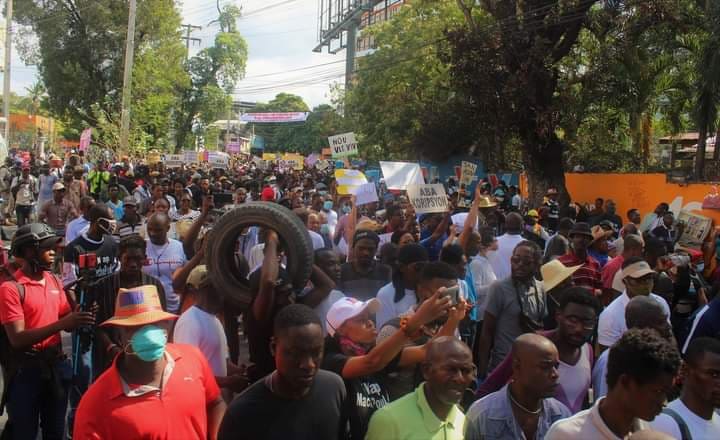Social Movements and Civil Society must remain alert to what is happening in Haiti | Analysis by CLOC

Haiti was the first black country to gain its independence with the blood and life of its combatants on January 1st, 1804. At the time of independence its population was 500 000 inhabitants and its territory had a forest cover of 80%. Today the population is of over 12 million and the original forests have been reduced to about 1%. It is clear that the environmental situation is very serious. This nation, birthplace of freedom, is going through one of its worst moments.
The country has long been in a situation of structural crisis, which could be said to have begun in 1804 with the assassination of Father Jean Jacques Dessalines. But it has become a global crisis that impacts greatly on all sectors of society in the last 10 years, during the regime of the PHTK (Partí Haitien Tèt Kale, the “bald headed” political party). This is a Creole expression that normally could not be used as a name of a political organization but the party was founded by President Joseph Martelly, who came to power in 2011 with fraud supported by The Organization of American States (OAS). Martelly, with the complicity of imperialist forces, handed over power to his protégé Jovenel Moïse in an election with many political scams between the oligarchy and imperialism. Jovenel was officially elected with 500,000 voters out of more than 6 million who were eligible to vote. Thus, he was a president with no legitimacy from the beginning. Jovenel’s constitutional mandate expired on February 7, 2021 but he decided to stay in power in violation of electoral law. For Haitians, he is a de facto president.
On the night of July 6-7, Jovenel was assassinated in his private residence and his wife was mortally wounded. At this time, her health condition is reported to be stable and her life is no longer in danger. The assassination of Jovenel has to do not only with the PHTK’s attempt to remain in power but also many other reasons.
In a briefing note published for social movements and civil society everywhere, the Latin American Coordination of La Via Campesina (CLOC) has provided an analysis of the evolving political situation in Haiti.
This post is also available in Español.
